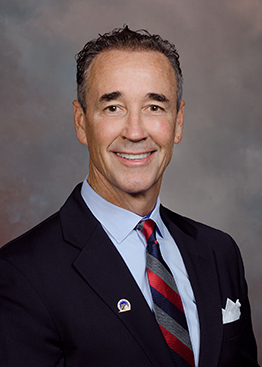BY ALEXANDRA MALONEY
CNS – The Senate voted 23-16 Feb. 5 to ban the use of solitary confinement in Virginia correctional facilities and juvenile detention centers.
The bill to ban to punishment, SB1301, was introduced by Sen. Joseph Morrissey, D-Richmond.
“Isolated confinement, which is more commonly known as solitary confinement, is antiquated,” Morrissey said following the vote. “It has been proven with empirical evidence that somebody’s mental and physical well-being starts to deteriorate in as few as ten days in isolation.
“We have one resident that was in solitary confinement for 16 months. I think that is unconscionable. So, this bill eliminates solitary confinement in Virginia. It does allow exceptions when absolutely necessary, but I think it is just another hugely positive step for criminal justice reform in Virginia.”
Isolated confinement is defined as confinement of a prisoner or a juvenile to a cell alone, or with one other person, for 20 or more hours per day for adults and 17 or more hours per day for juveniles, according to the bill.
Only in the case of medical or mental health treatment is isolated confinement permitted under this bill. In these circumstances, the use of solitary confinement must be done in a manner that is consistent with the recommendations of medical or mental health professionals practicing in close proximity to the correctional facility.
The bill faced opposition while on the floor of the Senate, as well as prior to its full floor vote, with amendments being made to eliminate the requirement in the bill for three hours per day out of cell programmatic intervention for all inmates in the form of classes, work or therapy.
“We turned some hearts, but the opposition didn’t surprise me at all,” Morrissey said.
A social movement to ban the use of solitary confinement has seen increased support throughout the country in the last few years. The American Civil Liberties Union (ACLU) has been working to ban its use nationwide.
“Long-term isolation costs too much, does nothing to rehabilitate prisoners, and exacerbates mental illness – or even causes it in prisoners who were healthy when they entered solitary,” according to the ACLU website.
Morrissey agreed with the organization’s sentiment that isolation has a detrimental effect on inmates’ mental health.
“I think it [the bill] is a huge difference not just for inmates who are exposed to solitary confinement, but also their families who are harmed when their loved ones go into solitary confinement,” Morrissey said. “The families either can’t communicate with them, or when they do communicate with them, their loved ones come out in a worse form than when they went in.”



